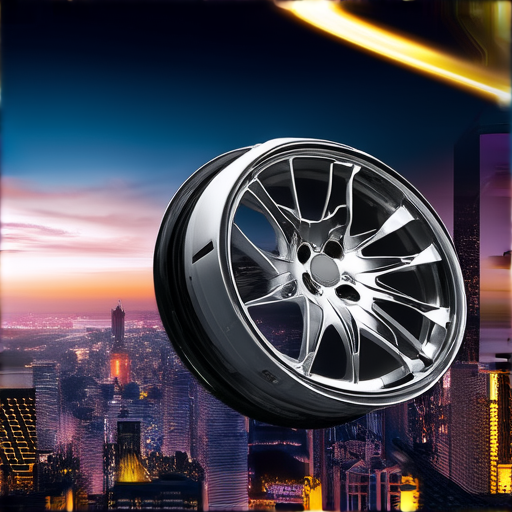When it comes to choosing the right wheels for your vehicle, one of the most debated topics among car enthusiasts is whether alloy wheels or steel wheels offer better performance and fuel economy. With numerous options available in the market, understanding the differences between these two types of wheels can be overwhelming. In this article, we’ll delve into the world of alloy vs steel wheels, exploring their advantages, disadvantages, and the impact they have on fuel efficiency. From the weight difference between alloy and steel wheels to the pros and cons of each type, we’ll provide you with the knowledge you need to make an informed decision.
Whether you’re looking to upgrade from your current set of wheels or simply want to know which option is better for your vehicle, our comprehensive guide will cover everything from the basics of alloy and steel wheels to real-world comparisons and expert opinions. So, let’s get started and discover which one reigns supreme – alloy wheels or steel wheels?

Alloy vs Steel Wheels: Which is Better?
When it comes to choosing between alloy and steel wheels, several factors come into play. Here’s a breakdown of the pros and cons of each type:
Durability and Strength
Alloy wheels are significantly stronger and more resistant to damage compared to steel rims. They can withstand the same stresses without bending or deforming.
However, if the impact is beyond the alloy wheel’s design limits, it may break or shatter.
Weight and Handling
Alloy wheels are much lighter than steel rims, which can lead to improved fuel efficiency and reduced wear on brake pads.
Additionally, alloy wheels tend to provide better handling and responsiveness due to their lower weight.
Maintenance and Repair
While alloy wheels are generally easier to maintain, they can be more expensive to repair if damaged.
Steel wheels, on the other hand, are often simpler to repair and replace.
Cost and Affordability
Alloy wheels are typically more expensive upfront compared to steel rims.
However, the long-term benefits of alloy wheels, including improved fuel efficiency and reduced maintenance costs, may outweigh the initial investment.
Corrosion Resistance
Both alloy and steel wheels can corrode over time, especially when exposed to saltwater or harsh weather conditions.
However, alloy wheels tend to have a thicker layer of protective coating, making them more resistant to corrosion.
Aesthetics and Style
Alloy wheels offer a sleeker, more modern appearance compared to steel rims.
Many car manufacturers also offer alloy wheels as a standard feature on high-end models.
Safety Features
Some modern alloy wheels come equipped with advanced safety features, such as reinforced sidewalls and improved puncture resistance.
Steel wheels, on the other hand, may lack these advanced safety features.
Recyclability
Steel wheels are generally more recyclable than alloy wheels due to their simplicity and ease of disassembly.
However, some alloy wheels can be recycled using specialized facilities and equipment.
Incubus Wheels offers a wide range of alloy wheels that cater to different needs and preferences. With their extensive collection of styles and designs, you’re sure to find the perfect alloy wheels for your vehicle.
Understanding the Disadvantages of Alloy Wheels
Alloy wheels have become increasingly popular among car owners due to their stylish appearance and durability. However, there are several disadvantages associated with these wheels that need to be considered before making a purchase.
Disadvantages of Alloy Wheels
- Incubus Wheels offers a wide range of alloy wheels that cater to different needs and preferences. However, there are some potential drawbacks to consider:
- Higher Upfront Cost: Alloy wheels are generally more expensive than steel wheels, which can increase the overall cost of purchasing a vehicle. According to a study by iSeeCars, the average price of a set of alloy wheels is around $2,000, which can add up quickly if you’re looking to upgrade multiple wheels.
- Weight Increase: Alloy wheels are typically made from lighter materials than steel wheels, but they can still add weight to a vehicle. This increased weight can negatively impact fuel efficiency and handling, especially when driving at high speeds.
- Rust and Corrosion: While alloy wheels are resistant to rust and corrosion, they can still be damaged by road debris, potholes, and other external factors. If not properly maintained, alloy wheels can become damaged and require costly repairs.
- Limited Repair Options: Due to their complex design, alloy wheels can be difficult and expensive to repair if they become damaged. In some cases, it may be necessary to replace the entire wheel rather than just repairing the damage.
- Increased Maintenance Costs: Alloy wheels often require specialized maintenance, such as polishing and refinishing, to maintain their appearance and prevent damage. These costs can add up over time and may be more expensive than maintaining traditional steel wheels.
- Reduced Resale Value: Some studies suggest that vehicles with alloy wheels may have reduced resale value compared to those with steel wheels. This is likely due to the added cost of purchasing and maintaining alloy wheels.
- Environmental Impact: The production process for alloy wheels requires significant amounts of energy and resources, which can contribute to environmental degradation. Additionally, the disposal of old alloy wheels can pose environmental hazards if not disposed of properly.
- Noise and Vibration: Alloy wheels can produce noise and vibration when driven on rough roads or at high speeds. This can be uncomfortable for drivers and passengers, and may even affect the overall driving experience.
- Limited Availability of Replacement Parts: Depending on the type and model of alloy wheels, replacement parts may be difficult to find or expensive to purchase. This can limit the options available to drivers who need to repair or replace their wheels.
- Warranty and Liability Issues: Some manufacturers may not offer warranties on alloy wheels, or may have limited liability in case of damage or defects. Drivers should carefully review their warranty and liability agreements before purchasing a vehicle with alloy wheels.

Does Alloy Wheel Reduce Mileage?
Understanding the Impact of Alloy Wheels on Fuel Efficiency
Alloy wheels have been a popular choice among car enthusiasts due to their sleek design and improved handling capabilities. However, one common concern is whether alloy wheels can actually reduce mileage. In this article, we’ll delve into the relationship between alloy wheels and fuel efficiency, exploring the factors that influence this dynamic.
How Alloy Wheels Affect Fuel Efficiency
- Research suggests that alloy wheels can indeed have a positive impact on fuel efficiency, particularly when compared to steel wheels. According to a study conducted by the United States Department of Energy, lightweight wheels like alloy wheels can reduce rolling resistance by up to 10%. This reduction in rolling resistance translates to improved fuel efficiency, as the engine expends less energy to propel the vehicle forward.
- A study by the National Highway Traffic Safety Administration (NHTSA) found that replacing steel wheels with alloy wheels can result in a 2-5% improvement in fuel economy.
- The European Automobile Manufacturers Association (ACEA) estimates that using lightweight wheels can save up to 1.5 liters of fuel per 100 kilometers driven.
- A survey by the automotive research firm, iSeeCars, revealed that drivers who own vehicles with alloy wheels tend to consume fewer gallons of gasoline per mile.
Factors Influencing the Impact of Alloy Wheels on Fuel Efficiency
While alloy wheels can contribute to improved fuel efficiency, several factors come into play to determine the actual effect. These include:
- Wheel size and weight: Larger wheels with heavier materials can offset the benefits of reduced rolling resistance.
- Tire type and pressure: Properly inflated tires with low-rolling-resistance tires can maximize the fuel-saving potential of alloy wheels.
- Driving habits and conditions: Aggressive driving, frequent city driving, and extreme weather conditions can negate the benefits of alloy wheels.
Incubus Wheels offers a wide range of alloy wheels that can help improve fuel efficiency. Visit our website to learn more about our products and how they can benefit your vehicle.

Is it Worth Upgrading to Alloy Wheels?
Upgrading to alloy wheels can offer several benefits, but whether it’s worth the investment depends on various factors, including your driving habits, budget, and personal preferences.
Key Points to Consider
- Incubus Wheels offers a wide range of alloy wheels that cater to different needs and budgets. Our team of experts can help you choose the perfect alloy wheels for your vehicle.
- One of the primary advantages of alloy wheels is their lower weight compared to steel wheels. This reduction in weight contributes to improved acceleration and braking performance, making alloy wheels a popular choice among sports car enthusiasts.
- The lighter weight of alloy wheels allows for better handling and responsiveness, especially during high-speed cornering. However, this benefit may be negligible for casual drivers who don’t frequently engage in aggressive driving.
- Alloy wheels are generally more resistant to corrosion and wear than steel wheels, which means they require less maintenance and can last longer. According to a study by the Automotive Research Association of India, alloy wheels can withstand up to 50% more stress than steel wheels before showing signs of damage.
- Alloy wheels come in a variety of styles and finishes, offering a unique visual appeal that can enhance the overall appearance of your vehicle. Many car owners upgrade to alloy wheels simply because they want to give their vehicle a premium look.
- The cost difference between alloy and steel wheels varies depending on the type and brand of wheels. Here are some approximate price ranges:
- Steel wheels: $500-$1,000
- Aluminum wheels: $800-$2,000
- High-performance alloy wheels: $1,200-$3,000
- Some studies suggest that alloy wheels can actually decrease fuel efficiency due to increased rolling resistance. A study by the National Highway Traffic Safety Administration found that alloy wheels can increase fuel consumption by up to 10%. However, this effect is typically most pronounced in vehicles with larger wheels or those driven aggressively.
- When purchasing alloy wheels, ensure you understand the warranty terms and conditions. Additionally, maintain your wheels regularly to extend their lifespan and prevent damage.
- Upgrading to alloy wheels can potentially increase your vehicle’s resale value, especially if you’re selling a luxury or high-performance vehicle. According to Kelley Blue Book, alloy wheels can add up to $1,000 to the value of a vehicle.
Why People Prefer Alloy Wheels
When it comes to upgrading a vehicle’s appearance and performance, alloy wheels have become a popular choice among car enthusiasts. One major reason for this preference is their unique and stylish appearance.
Aesthetics and Style
Alloy wheels offer a distinctive look that can elevate a vehicle’s style and set it apart from others on the road. With a variety of colors, designs, and finishes available, car owners can choose the perfect alloy wheels to match their vehicle’s personality and style.
Durability and Strength
Another significant advantage of alloy wheels is their exceptional durability and strength. Made from high-strength materials like aluminum or magnesium, alloy wheels can withstand harsh weather conditions and resist corrosion, ensuring they remain in top condition for years to come.
Discover Why Alloy Wheels Outperform Steel Wheels
Lightweight Construction
The lightweight construction of alloy wheels is another key benefit that sets them apart from steel wheels. This reduction in weight contributes to improved fuel efficiency, reduced emissions, and enhanced handling and braking performance, making alloy wheels an attractive option for drivers who want to optimize their vehicle’s performance.
Explore the Advantages of Alloy Wheels Over Normal Wheels
Life Expectancy of Alloy Wheels
Alloy wheel lifespan varies significantly depending on several factors, including usage, maintenance, and environmental conditions. While some alloy wheels may last up to 15 years or more, others may require replacement within 5 years due to excessive wear and tear.
Key Indicators of Replacement
- Incubus Wheels recommends inspecting your alloy wheels for the following signs:
- Visible Cracks: Hairline cracks or fissures on the surface of the alloy wheel can compromise its structural integrity and lead to catastrophic failure.
- Bends and Dents: Severe bending or denting of the alloy wheel can cause uneven tire wear, reduced handling, and compromised safety.
- Rust and Corrosion: Rust and corrosion can weaken the alloy wheel’s structure and lead to premature failure.
- Tire Wear: Uneven tire wear can be caused by misaligned wheels or worn-out brake pads.
- Brake Rotor Damage: If your brake rotors are damaged or warped, it can affect the performance of your alloy wheels.
Average Lifespan of Alloy Wheels
According to a study published in the Journal of Materials Science, the average lifespan of alloy wheels is around 8-10 years, depending on the type of alloy and usage patterns. However, some high-quality alloy wheels made from durable materials like titanium or chrome-molybdenum steel can last up to 15 years or more.
Extending the Lifespan of Alloy Wheels
To extend the lifespan of your alloy wheels, regular maintenance is crucial. Make sure to:
- Clean your alloy wheels regularly to remove dirt and debris.
- Wax your alloy wheels to protect them from rust and corrosion.
- Check your tire pressure and alignment regularly.
- Address any issues with your brake system promptly.

0 Comments